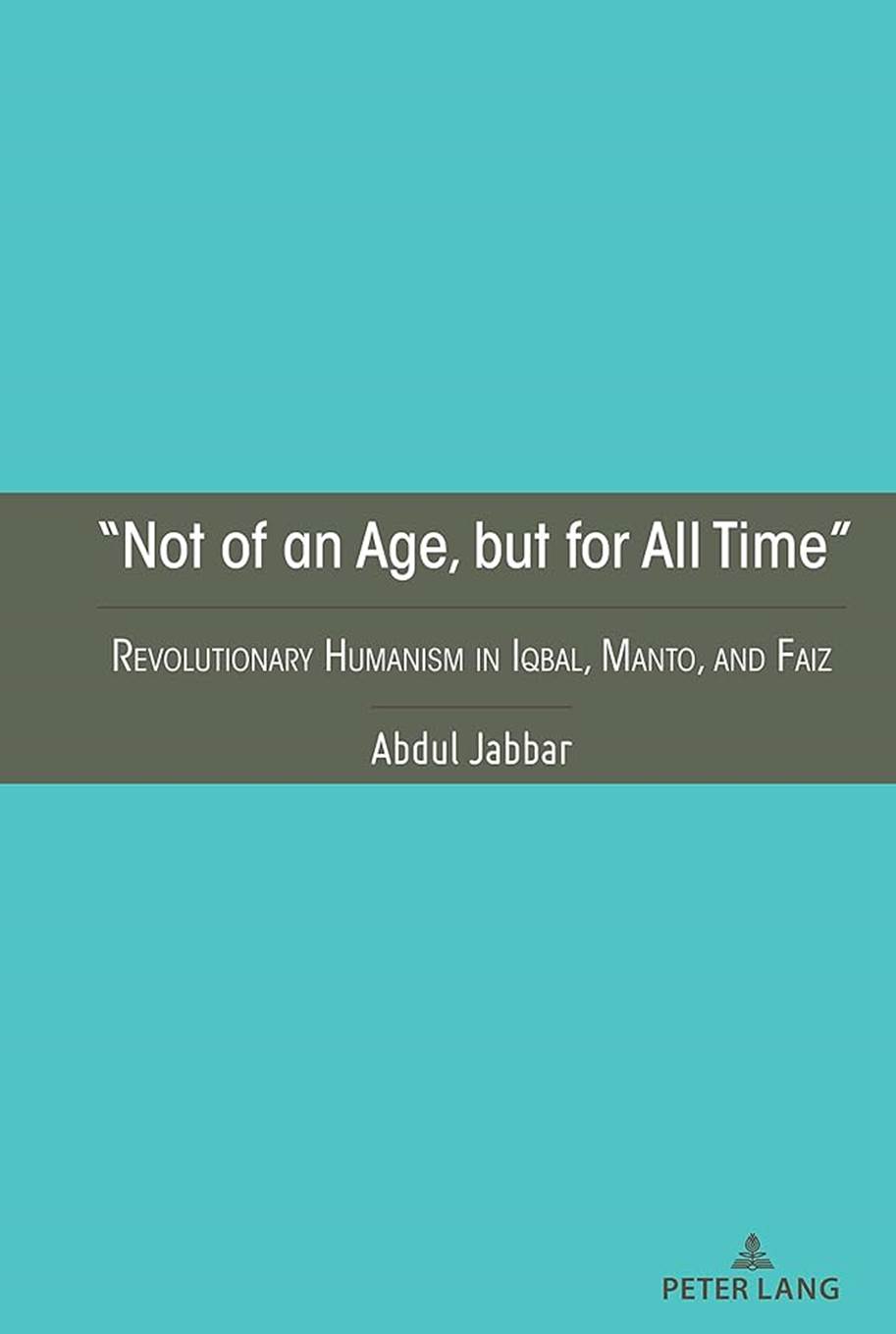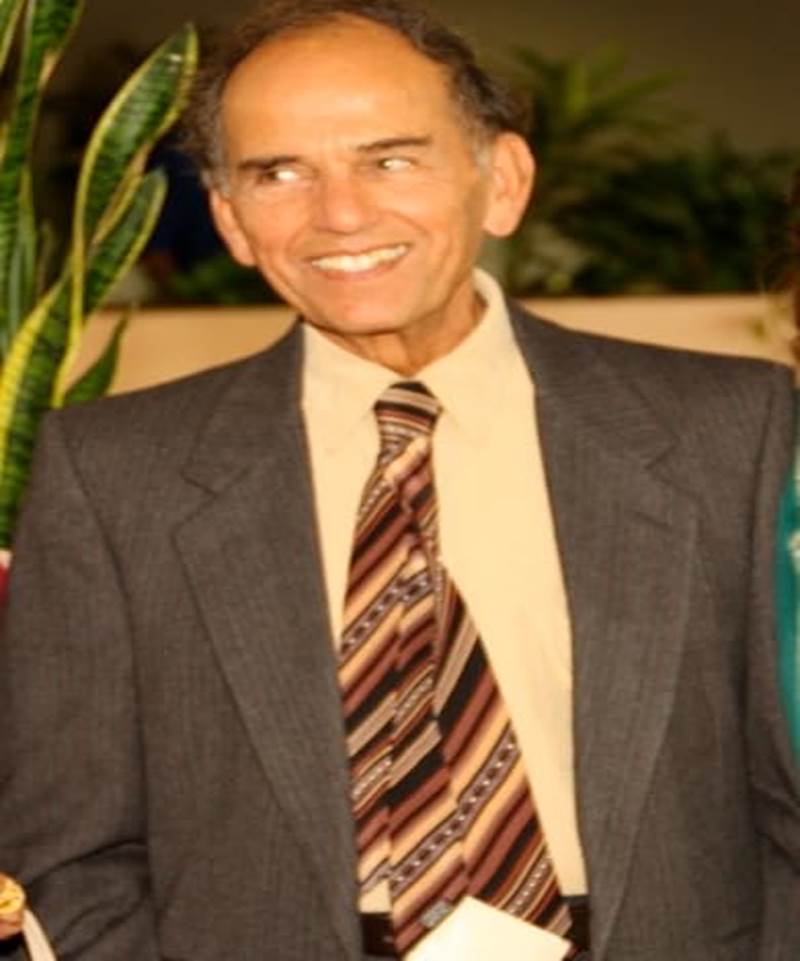

Iqbal, Manto and Faiz Revisited
By Dr Asif Javed
Williamsport, PA
Back in 1937, Allama Iqbal was visited by the Station Director of the newly established Lahore Radio Station. The great man was asked to record a new year’s message for the radio. Iqbal had been in poor health for some time. He felt weak, had poor eyesight and sore throat with hoarseness. He politely refused. The visitors, however, had with them Iqbal’s close friend Maulana Abdul Majid Salak. Salak prevailed upon the poet extraordinaire. Iqbal reluctantly agreed but then asked Salak to write the message for him. Salak wrote a seven-minute speech that Iqbal approved with a minor addition. Salak then went ahead and read Iqbal’s new year's message on the radio on January 1, 1938.
Just a cursory glance at Iqbal’s message reveals his foresight: while he mentioned progress in knowledge and matchless scientific development, he showed his concern about tyranny of imperialism covering its face under the mask of democracy, mutual hatred, and accursed nationalism. In his message, he referred to four problem spots in the world: Abyssinia, Palestine, Spain, and China. More than eight decades later, Palestine continues to bleed. In the message, Iqbal called the whole world being a family of God.

Iqbal would have been pleased to know that decades later, Dr Abdul Jabbar, in a faraway land, will look in to his revolutionary humanism and painstakingly go over his poetry to prove that Iqbal was more than just a poet of India and of Muslims
Iqbal would have been pleased to know that decades later, Dr Abdul Jabbar, in a faraway land, will look in to his revolutionary humanism and painstakingly go over his poetry to prove that Iqbal was more than just a poet of India and of Muslims. His message was universal. Dr Jabbar, in his recently published book, Not of an Age but for All Time, has given several examples from Iqbal's poetry to prove that Iqbal cared deeply about humanity in general. His concern about Italy’s occupation of Abyssinia, a predominantly Christian country, and the Jalianwala Bagh massacre, where majority of victims were non-Muslims, shows it. Iqbal with his foresight, had deep reservations about the infamous Belfour Declaration. This was years before the state of Israel was created. Iqbal rejected Jewish claims to Palestine. The author then quotes the following verse of Iqbal:
If the Jews can claim a right to Palestine
Why can’t the Arabs claim Spain?
The goal of British imperials is
Other than access to honey and dates!
Dr Jabbar then moves on to another giant of Urdu literature, Saadat Hasan Manto. Under the title, Holding up a Mirror to Society, the author begins his narrative by a quote of Manto:
A revolutionary is someone who raises his voice against every injustice and wrongdoing. A revolutionary is one who is an embodiment of the song of all lands, all skies, all tongues, and all time.
Manto wrote often about the underprivileged and oppressed but particularly about women’s exploitation. Several of his stories deal with prostitutes. But his vision was a lot broader than that. Zahida Hina, an acclaimed writer herself, has called Manto the creative conscience of the subcontinent. Dr Jabbar feels that a better title would be the conscience of the world. Manto personally suffered from the partition in 1947 and wrote several stories about the trauma. A famous one is Toba Tek Singh. Urdu short story writer A. Hamid was present when Manto read his story:
Meeraji’s day was being celebrated in YMCA Lahore. Manto Sahib read his new story Toba Tak Singh in that literary gathering. The audience was visibly moved; some appeared stunned. Towards the end of the story, when Toba Tek Singh manages to climb a tree at the Pakistan-India border, and declares that he will not go to any country, several people in the audience became so emotional that they stood up. I was sitting in the front row and remember seeing tears in Manto Sahib’s eyes as well.
This was vintage Manto. The massacre of partition had deeply affected him. He wrote several stories about it, making no distinction between Muslims and non-Muslims for he was a revolutionary humanist too as Dr Jabbar has shown in his well-researched book. Manto did not spare the ruling British either. He wrote more than once about British Imperialism and atrocities in India including the Jalianwala Bagh massacre.
And then, there are nine Letters to Uncle Sam. Written in the early 50s, these are “an entertaining record of Manto’s political views, his knowledge of world affairs, international politics, and his criticism of US imperialism and destructive practices,” writes Dr Jabbar. Here is an excerpt from letter number four to Uncle Sam:
Uncle, your concern is understandable in view of the fact that Pakistan’s mullah is the best safeguard against Russia’s communism. When the military aid resumes, you should first arm the mullahs. Send them pure American clay pebbles, pure American prayer beads, and pure American prayer rugs. Keep razors and scissors on top of the list. You will win them over completely, if you also send them pure American hair-coloring kits. As far as I can understand, the purpose of your military aid is arming these mullahs…If the contingent of mullahs is armed American style, the Soviets will have to pack up and leave.
In one letter, there is a reference to US wars for profit and US desire to trigger a war between India and Pakistan. Manto’s prediction of that war did come true a decade after his death.
Dr Jabbar then turns his attention to Faiz Ahmad Faiz, widely believed to be one of the best Urdu poets of his time. Under the title, Poetry of Faiz: A Charter for Compassion, he begins with a quote by Faiz himself:
At long last, instead of wars, hatred and cruelty, the foundation of humankind will rest on the message of the great Persian poet Hafiz of Shiraz: “Every foundation you see is faulty, except that of Love, which is faultless.”
Faiz was troubled by the US phobia of communism that stifled freedom of expression. He wrote an elegy of Julius and Ethel Rosenburg who were executed in the hysteria of McCarthyism. That may have led to Faiz’s restricted entry in the USA.
A fearless writer, Faiz once wrote this about what looks like his manifesto:
The writer’s prime duty is his duty to himself. The writer is capable of describing only what he has emotionally and intellectually experienced. This is an essential condition for the creation of real literature; all the rest is juggling with words, thoughts and images. Or with slogans.
Faiz wrote many poems for peace. Among these is Blackout - a poem about "the mental blackout, in which the light of reason and brotherhood is extinguished, leaving the mind either paralyzed or pushing it towards destruction," explains Dr Jabbar. Blackout was written in September 1965 during Indo-Pak War. The War Cemetery in Leningrad, written in 1976, "commemorates the grief that has touched all nations. Faiz wants to make us realize, the common humanity of us all treating all human life as equally valuable, whether they are friends or foes," writes the author.
We Will Witness (hum dekhen ge) is one of faiz's most popular poems. The author notes that "it has a history of being used in many revolutionary contexts. Faiz wrote it as a protest poem against the oppression of the masses, as a warning to all tyrants, and a declaration of the people's eventual victory."
Faiz suffered much in his life including imprisonment for several years, followed by exile. Although he was the recipient of the Lennin Prize and reportedly was also nominated for Nobel Prize, a humanist and revolutionary like Faiz would not have cared much for such accolades. But still, the fact that renowned Urdu novelist, Quratul Ain Haider chose the titles of three of her novels from his poetry speaks volumes about where Faiz stood in the eyes of his contemporaries.
Dr Jabbar has made an extraordinary effort to make the reader aware of Iqbal, Manto and Faiz's message of universal love, brotherhood, humanism and concern for all. This is a message that we need to hear, understand, and try to pass around. In these tumultuous times, there is a pressing need for this than ever before. This book is a commendable effort for which the author deserves our gratitude.
The writer may be reached at asifjaved@comcast.net
References:
Not of an Age, but for all Time by Abdul Jabbar; Sarguzasht by Maulana Abdul Majid Salak;
Chand Chehrey by A. Hamid.
Back to Pakistanlink Homepage

